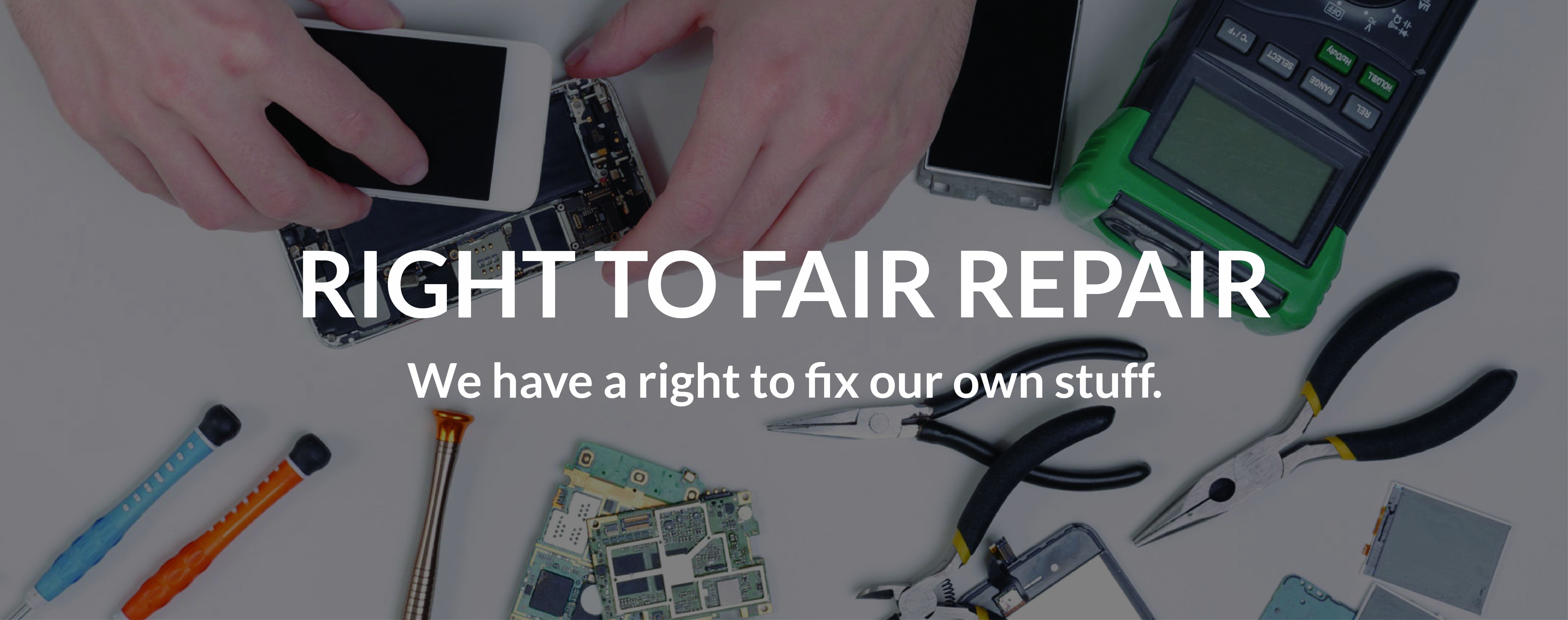Right To Fair Repair
Many of the things we buy today just aren’t built to last. They break, they’re impossible to fix yourself, and the company that made them wants to charge an arm and a leg for a repair. The company tries to convince you that it’s better to just buy a new device — it’s less hassle.
Phones, laptops and even tractors built today are often full of parts and software that manufacturers don’t make available to independent repairers, so the company can keep a monopoly on repair. That forces many users whose devices just need minor repairs to trash them and spend hundreds of dollars on new ones.
The result? More waste. In just one example, Americans dispose of 416,000 cell phones every day. We’re treating powerful computers that fit in the palms of our hands like disposable items.
Farmers unable to repair their tractors are reverting to using older, repairable models. Because farmers using some modern models don’t have access to the tools and information they need to repair their machines, they have to haul them to the dealer and deal with long waits every time they break.
It’s not laziness or wastefulness that’s making us a nation of people who choose consumption over repair — we just need companies to give us access to the parts, software and service information we need to fix our stuff.
It’ll save us money, increase the quality of our products, and give us the satisfaction of being able to reuse and repurpose something that otherwise would have ended up in a landfill.
Momentum is on our side: Right to Repair legislation has passed in Massachusetts (in 2012 and 2020), Colorado (2022 and 2023), New York, Minnesota, Maine and California. In 2024, Oregon and Colorado passed strong Right to Repair laws. Many other states are still moving forward.
From Hawaii to Indiana, Massachusetts to Washington, Right to Repair legislation has attracted bipartisan support as a common-sense reform.

